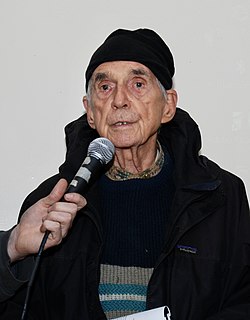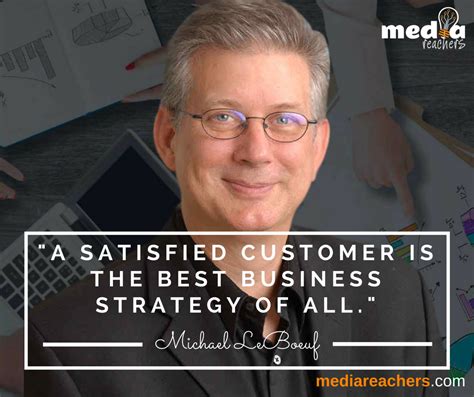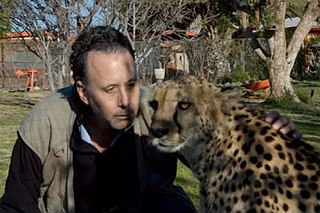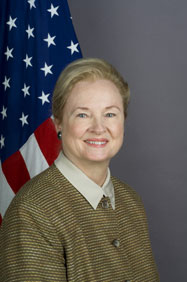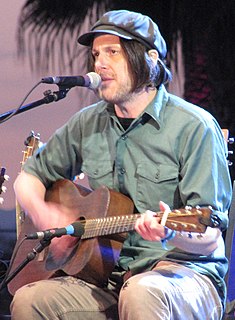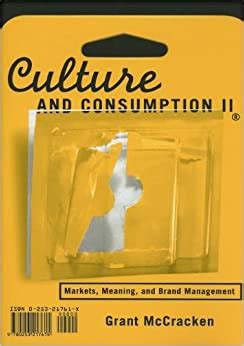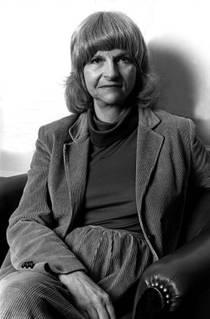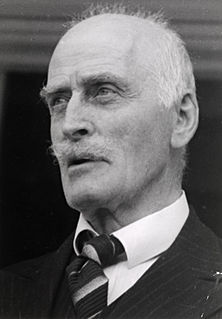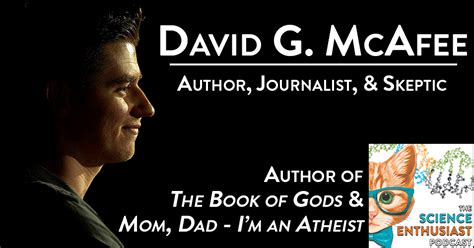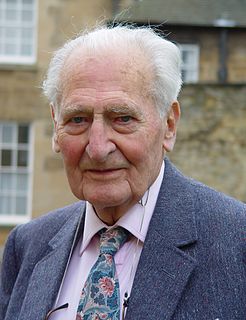Top 882 Incorrect Assumptions Quotes & Sayings - Page 15
Explore popular Incorrect Assumptions quotes.
Last updated on April 19, 2025.
We create institutions and policies on the basis of the way we make assumptions about us and others. We accept the fact that we will always have poor people around us. So we have had poor people around us. If we had believed that poverty is unacceptable to us, and that it should not belong to a civilized society, we would have created appropriate institutions and policies to create a poverty-free world.
Every nation-state tends towards the imperial - that is the point. Through banks, armies, secret police, propaganda, courts and jails, treaties, taxes, laws and orders, myths of civil obedience, assumptions of civic virtue at the top. Still it should be said of the political left, we expect something better. And correctly. We put more trust in those who show a measure of compassion, who denounce the hideous social arrangements that make war inevitable and human desire omnipresent; which fosters corporate selfishness, panders to appetites and disorder, waste the earth.
All of us live at the feeling level, and our feelings are in large part a result of the way we perceive things. You observe or are told something, you interpret it, and only then do you have a reaction at the feeling level. The point is that feeling is preceded by perception, and all of us are capable of controlling our interpretation [the associations and assumptions] of what we see. If we can control our interpretation, then it logically follows that we can exercise some control over our feelings as well.
Similarly, the press never tested many of the assumptions about WMDs. One of the great myths about the WMD issue is that everybody believed Iraq had them. Well, that's not true. There were a number of people in the intelligence community and the State Department who were skeptical, and many analysts in the Department of Energy were dubious about Iraq's nuclear capability. There were also people like Scott Ritter who were saying quite accurately what was going on.
It is instructive to see how organizations pursue their goal of reducing errors and uncertainty. They impose standards, employ checklists, demand that knowledge workers list assumptions for their conclusions and document all sources. These actions either directly interfere with forming insights or create an environment where insights and discoveries are treated with suspicion because they might lead to errors. They signal to knowledge workers that their job is not to make mistakes. Even if they don't make discoveries, no one can blame them as long as they don't make mistakes.
Does political correctness have a good side? Yes, it does, for it makes us re-examine attitudes, and that is always useful. The trouble is that, with all popular movements, the lunatic fringe so quickly ceases to be a fringe; the tail begins to wag the dog. For every woman or man who is quietly and sensibly using the idea to examine our assumptions, there are twenty rabble-rousers whose real motive is desire for power over others. The fact that they see themselves as antiracists or feminists or whatever does not make them any less rabble-rousers.
An axiomatic system comprises axioms and theorems and requires a certain amount of hand-eye coordination before it works. A formal system comprises an explicit list of symbols, an explicit set of rules governing their cohabitation, an explicit list of axioms, and, above all, an explicit list of rules explicitly governing the steps that the mathematician may take in going from assumptions to conclusions. No appeal to meaning nor to intuition. Symbols lose their referential powers; inferences become mechanical.
The difference between a good educator and a great educator is that the former figures out how to work within the constraints of traditional policies and accepted assumptions, whereas the latter figures out how to change whatever gets in the way of doing right by kids. 'But we've always...', 'But the parents will never...', 'But we can't be the only school in the area to...' - all such protestations are unpersuasive to great educators. If research and common sense argue for doing things differently, then the question isn't whether to change course but how to make it happen.
The Jews believed they were the nation God had chosen among all the nations. And they were. But that did not give them immunity to God's judgment. Like the nations, they too would feel God's wrath if they refused to live in God's ways. Furthermore, God could deal with other nations in mercy as well as judgment. Jeremiah was full of surprises, as against the popular religious assumptions of his day. That's perhaps why some people, when they encountered Jesus, thought he was very like Jeremiah. He turned things upside down.
My advice was to start a policy of making reversible decisions before anyone left the meeting or the office. In a startup, it doesn't matter if you're 100 percent right 100 percent of the time. What matters is having forward momentum and a tight fact-based data/metrics feedback loop to help you quickly recognize and reverse any incorrect decisions. That's why startups are agile. By the time a big company gets the committee to organize the subcommittee to pick a meeting date, your startup could have made 20 decisions, reversed five of them and implemented the fifteen that worked.
We do not realize how deeply our starting assumptions affect the way we go about looking for and interpreting the data we collect. We should recognize that nonhuman organisms need not meet every new definition of human language, tool use, mind, or consciousness in order to have versions of their own that are worthy of serious study. We have set ourselves too much apart, grasping for definitions that will distinguish man from all other life on the planet. We must rejoin the great stream of life from whence we arose and strive to see within it the seeds of all we are and all we may become.
...but it was death that changed. People are still people. Some good, some bad. Death changed, and we don't know what death really means anymore. Maybe that was the point. Maybe this is an object lesson about the arrogance of our assumptions. Hard to say. But the world? She didn't change. She healed. We stopped hurting her and she began to heal. You can see it all around. The whole world is a forest now. The air is fresher. More trees, more oxygen.
I think our brains does have a tendency to be true to its own ideas and statements. Everything we do and everything we think about is a belief. Until we get to the point where we look beyond our own ego-self, and to some degree beyond our own mind, we are always going to make assumptions and have beliefs to make our brains feel more comfortable. And if we can get to a point where we embrace that uncertainty and doubt, and be willing to learn from that and to explore that, I think that that could be a very positive experience.
An extremely important part of our work toward emotional growth and change will come from examining our belief systems regarding all areas of life. To gain the courage to be yourself, you need to address the beliefs that are keeping you stuck where you are. What beliefs, assumptions, and attitudes are you holding onto even though they no longer enhance your life? It is possible to free yourself from worn-out beliefs and acquire ones that bring happiness, strength, and self-esteem. What we believe we may become.
The Holocaust most assuredly challenges any and all faith in God. Faith in humanity. Faith in nature. Faith in the future. I don't "tell" young people anything. I ask them to consider many things, particularly, their assumptions regarding their natural obligations to be loving towards all living beings. Many of my works - both literary and film - are fictional, like Codex Orféo. And that's because the genre has always allowed me to suggest things that are opinions, spiritual impulses and intuitions, not necessarily provable.
Logic, too, also rests on assumptions that do not correspond to anything in the real world, e.g., on the assumption that there areequal things, that the same thing is identical at different points in time: but this science arose as a result of the opposite belief (that such things actually exist in the real world). And it is the same with mathematics, which would certainly never have arisen if it had been understood from the beginning that there is no such thing in nature as a perfectly straight line, a true circle, and absolute measure.
Republicans need to stop making assumptions, and they need to start talking to younger people, people of color, and ask them - not talk to them - ask them, 'What is it that we can do better? How do we earn your vote? How do we earn the ability for you to see that we can be the party that will make your life better and that of your children?'
It is becoming plain that our liberal regime of equality and personal freedom depends, more than most theorists of liberalism have been willing to admit, on the existence and support of certain social assumptions and practices: the belief that each and every human being possesses great and inherent value, the willingness to respect the rights of others even at the cost of some disadvantages to one's self, the ability to defer some immediate benefits for the sake of long-range goals, and a regard for reason-giving and civility in public discourse.
Thus, be it understood, to demonstrate a theorem, it is neither necessary nor even advantageous to know what it means. The geometer might be replaced by the "logic piano" imagined by Stanley Jevons; or, if you choose, a machine might be imagined where the assumptions were put in at one end, while the theorems came out at the other, like the legendary Chicago machine where the pigs go in alive and come out transformed into hams and sausages. No more than these machines need the mathematician know what he does.
I realized that, to a large degree, I had kept my rational mind at bay my whole life. I just acted on intuition in terms of how I related to life. At some point, my rational mind started creeping in, and it would not shut up. I finally had to address it and confront it. I think most intelligent people, at a younger age than I have, begin to question some of the fundamental assumptions our society promotes. But me, I just rejected it without even considering it.
Most change initiatives either fail or fall far short of original expectations. More often than not, resistance is cultural in nature but the real cause of lots of resistance often is that however much a team might say that it wants to change, the old assumptions are woven, invisibly, deep within the corporate culture, and from this staging ground they act invisibly to sustain the old order. Finding the assumption out and then rooting them out is a special skill. It calls for assumption hunters, I call them.
White people don't have that problem, they get to go through life never having to fit into a box, and it's really more so true for white men because even just being a woman, you sort of have to walk around other people's assumptions of you and it's so exhausting and there's a sense, especially among young people of wanting to just live your life, not having to wear the weight of that pressure - pressure that people of color feel, that gay people of color feel, that women of color feel.
The evidence here, as elsewhere, suggests that education is certainly relevant, but more because better education is associated with general differences in patterns of life than because discrete parts of a lifestyle can be changed. Health-change policies which focus entirely on the individual may be ineffective not only because exposure to health risks is largely involuntary, but also, as this study has shown, because of unwarranted assumptions about the extent to which behaviour can, in these circumstances, be effective in improving health.
When we assume God to be a guiding principle well, sure enough, a god is usually characteristic of a certain system of thought or morality. For instance, take the Christian God, the summum bonum: God is love, love being the highest moral principle; and God is spirit, the spirit being the supreme idea of meaning. All our Christian moral concepts derive from such assumptions, and the supreme essence of all of them is what we call God.
"There is one basis of science," says Descartes, "one test and rule of truth, namely, that whatever is clearly and distinctly conceived is true." A profound psychological mistake. It is true only of formal logic, wherein the mind never quits the sphere of its first assumptions to pass out into the sphere of real existences; no sooner does the mind pass from the internal order to the external order, than the necessity of verifying the strict correspondence between the two becomes absolute. The Ideal Test must be supplemented by the Real Test, to suit the new conditions of the problem.
The great subversive works of children's literature suggest that there are other views of human life besides those of the shopping mall and the corporation. They mock current assumptions and express the imaginative, unconventional, noncommercial view of the world in its simplest and purest form. They appeal to the imaginative, questioning, rebellious child within all of us, renew our instinctive energy, and act as a force for change. This is why such literature is worthy of our attention and will endure long after more conventional tales have been forgotten.
...This is the first time I have met someone who seeks out people and who sees beyond. [...] We never look beyond our assumptions and, what's worse, we have given up trying to meet others; we just meet ourselves. We don't recognize each other because other people have become our permanent mirrors. If we actually realized this, if we were to become aware of the fact that we are alone in the wilderness, we would go crazy. [...] As for me, I implore fate to give me the chance to see beyond myself and truly meet someone.
It is the assumption of this book that there is a typical human nature. It is the aim of this book to seek it. Just like a surgeon, a psychiatrist can make all sorts of basic assumptions when a patient lies down upon the couch. He can assume that the patient knows what it means to love, to envy, to trust, to think, to speak, to fear, to smile, to bargain, to covet, to dream, to remember, to sing, to quarrel, to lie. The 'smile' of a baboon is a threat; the smile of a man is a sign of pleasure: it is human nature, the world over.
But now the world breaks in on us, the world is shocked, the world looks upon our idyll as madness. The world maintains that no rational man or woman would have chosen this way of life - therefore, it is madness. Alone I confront them and tell them that nothing could be saner or truer! What do people really know about life? We fall in line, follow the pattern established by our mentors. Everything is based on assumptions; even time, space, motion, matter are nothing but supposition. The world has no new knowledge to impart; it merely accepts what is there.
Often, very talented technical people find it extraordinarily difficult to take the viewpoint of customers, who are often ignorant about the technology and who may have strong and perhaps incorrect prejudices about it. The technical people may believe, deep down, that they know better what customers "should" need. Customers, of course, have a different perspective. They want products that will solve customer problems and provide other customer benefits, and will do so without undue risk or cost. Not infrequently, customers view advanced technology itself as a risk.
It was the ghost of rationality itself ... This is the ghost of normal everyday assumptions which declares that the ultimate purpose of life, which is to keep alive, is impossible, but that this is the ultimate purpose of life anyway, so that great minds struggle to cure diseases so that people may live longer, but only madmen ask why. One lives longer in order that he may live longer. There is no other purpose. That is what the ghost says.
Rational thinking which is free from assumptions ends therefore in mysticism. To relate oneself in the spirit of reverence for life to the multiform manifestations of the will-to-live which together constitute the world is ethical mysticism. All profound world-view is mysticism, the essence of which is just this: that out of my unsophisticated and naïve existence in the world there comes, as a result of thought about self and the world, spiritual self-devotion to the mysterious infinite Will which is continuously manifested in the universe.
For too many of us, it's become safer to retreat into our own bubbles, whether in our neighborhoods or on college campuses, or places of worship or especially our social media feeds, surrounded by people who look like us and share the same political outlook and never challenge our assumptions. And increasingly, we become so secure in our bubbles that we start accepting only information, whether it's true or not, that fits our opinions, instead of basing our opinions on the evidence that is out there.
When George W.Bush attacked Afghanistan, it was widely hailed, and the failure of our war there wasn't understood. Within a few months of attacking Afghanistan, Bush clearly moved on to get ready for Iraq, long before Osama bin Laden or Al Qaeda were dispensed with. There was never any serious debate in the press about whether even the notion that every Taliban was our enemy was valid. A lot of assumptions about that war were never challenged.
Christian apologists who argue that a story about an empty tomb is convincing evidence of a resurrected body are likely unfamiliar with Occam’s razor, which states that among competing hypotheses, the hypothesis with the fewest assumptions should be selected. They assume that the most likely explanation is miraculous resurrection through some unproven divine connection, but more likely scenarios include a stolen body, a mismarked grave, a planned removal, faulty reports, creative storytelling, edited scriptures, etc. No magic required.
The risk of developing carcinoma of the lung increases steadily as the amount smoked increases. If the risk among non-smokers is taken as unity and the resulting ratios in the three age groups in which a large number of patients were interviewed (ages 45 to 74) are averaged, the relative risks become 6, 19, 26, 49, and 65 when the number of cigarettes smoked a day are 3, 10, 20, 35, and, say, 60-that is, the mid-points of each smoking group. In other words, on the admittedly speculative assumptions we have made, the risk seems to vary in approximately simple proportion with the amount smoked.
Even when alternative views are clearly wrong, being exposed to them still expands our creative potential. In a way, the power of dissent is the power of surprise. After hearing someone shout out an errant answer, we work to understand it, which causes us to reassess our initial assumptions and try out new perspectives. “Authentic dissent can be difficult, but it’s always invigorating,” Nemeth says. “It wakes us right up.”
Misfortune occurs or can occur to anyone, of any sort of character. The eudaimonic has more resources to avoid it (being in autonomous control of his appetites and assumptions) and more resources to deal with it if it occurs (being better able to put it in perspective and maintain his own evenness of self-mastery). Tragedy as a dramatic form is meant to foster the ethos of sophrosyne or moderation, "nothing to excess"; it nurtures a sense of distance from the dominant illusions and delusions that may infect even aristoi.
Later, she would remember these years, and realize with astonishment that she had, by fifteen, decided on most of the assumptions she would carry for the rest of her life: that people were essentially not evil, that perfection was death, that life was better than order and a little chaos good for the soul. Most important, this life was all. Unfortunately, she forgot these things, and had to remember them the hard way.
This one question-'What do I know for certain?'-is tremendously powerful. When you look deeply into this question, it actually destroys your world. It destroys your whole sense of self, and it's meant to. You come to see that everything you think you know about yourself, everything you think you know about the world, is based on assumptions, beliefs, and opinions-things that you believe because you were taught or told they were true. Until we start to see these false perceptions for what they really are, consciousness will be imprisoned within the dream state.

